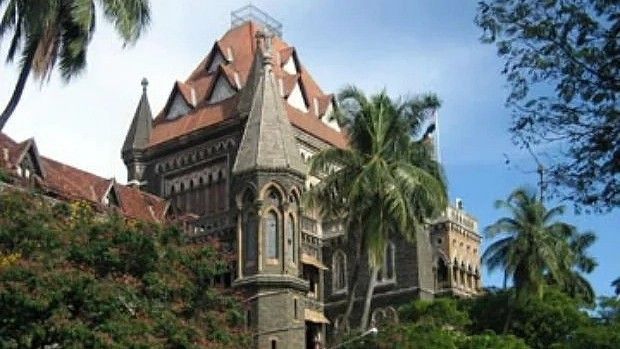
Mumbai: Use of loudspeakers is not an essential part of any religion, the Bombay High Court said on Thursday. Highlighting that “noise is a major health hazard on various aspects,” the court observed that no individual’s rights are infringed by the denial of permission to use loudspeakers.
“It is in the public interest that such permissions should not be granted. By denying such permissions, rights under Article 19 or 25 of the Constitution of India are not at all infringed,” a bench of Justices Ajey Gadkari and Shyam Chandak said.
The court was hearing a petition filed by two housing associations from Kurla East — Jaago Nehru Nagar Residents Welfare Association and Shivsrushti Co-op. Housing Societies Association Ltd. — alleging police inaction against noise pollution caused by loudspeakers installed on masjids in the area.
The petitioners contended that the use of loudspeakers for religious purposes, including the recitation of ‘Azaan,’ disturbed the peace and violated the Noise Pollution (Regulation and Control) Rules, 2000, as well as provisions under the Environment (Protection) Act, 1986.
The court emphasized the adverse impact of noise pollution on health, stressing that no religion mandates the use of loudspeakers or amplifiers. “Undisputedly no religion prescribes that prayers should be performed by disturbing the peace of others nor does it preach that they should be through voice-amplifiers or beating of drums,” the bench said. Citing a Supreme Court ruling in the Church of God (Full Gospel) in India, the court reiterated that religious practices cannot disturb others’ peace.
The judges further noted that the police are “bound” to act on complaints of noise pollution under Sections 38, 70, 136, and 149 of the Maharashtra Police Act, as well as the Environment Protection Act. It also instructed the police to ensure that complaints can be filed anonymously to protect complainants from backlash.
Reminding the authorities that ambient noise levels must not exceed 55 decibels during the day and 45 decibels at night in residential areas, the court added that cumulative noise from all sources must adhere to these limits.
“The law does not permit that, every individual loudspeaker will emit 55 or 45 decibels of noise aggregating to more than what is prescribed under the said Rules. That would amount to frustrating the intention of the Legislature,” the court said.
The police have power to impose penalties and seize loudspeakers, amplifiers, other equipment or gazettes, which produce offending noise, under the Maharashtra Police Act. On receiving any complaint, the HC said that the police must first caution the violator and on subsequent violations, it must impose fines.
For repeated breaches, seize loudspeakers and amplifiers under Section 70 and cancel permissions granted to the violators, the judges said. “The Police may also withdraw permissions granted to the said trusts / institutions for use of loudspeakers, if repeated violation of the provisions of said Noise Pollution Rules are brought to their notice,” the court underlined.
The HC has asked the State government to direct religious institutions to adopt mechanisms for controlling noise levels, including calibrated sound systems with auto-decibel limits.
The petition alleged that masjids in the vicinity violated noise pollution norms, particularly during early morning hours (5 am) and late at night. They pointed out that the area is a silent zone, surrounded by hospitals and schools, where the use of loudspeakers is prohibited. Despite multiple complaints to police and civic authorities, no substantial action was taken.
An RTI query revealed that no permission had been granted for the use of loudspeakers in the area. However, the police reportedly refrained from acting, citing the “sensitive” nature of the issue.
In an affidavit, the Deputy Commissioner of Police (Zone VI) stated that measures had been taken to address noise pollution, including decibel monitoring and interaction with mosque officials. The affidavit noted that noise levels were generally within permissible limits but acknowledged instances where violations were detected and addressed.
The court stated that the law must be upheld irrespective of religious sensitivities. “In a democratic State, there cannot be a situation that a person / group of persons/ association of persons would say that, it will not follow or adhere to the law of the land and the law enforcers would be meek or silent spectators to it,” the judges underscored.
The court concluded by urging the state to issue comprehensive guidelines to manage noise pollution effectively across religious and public spaces.